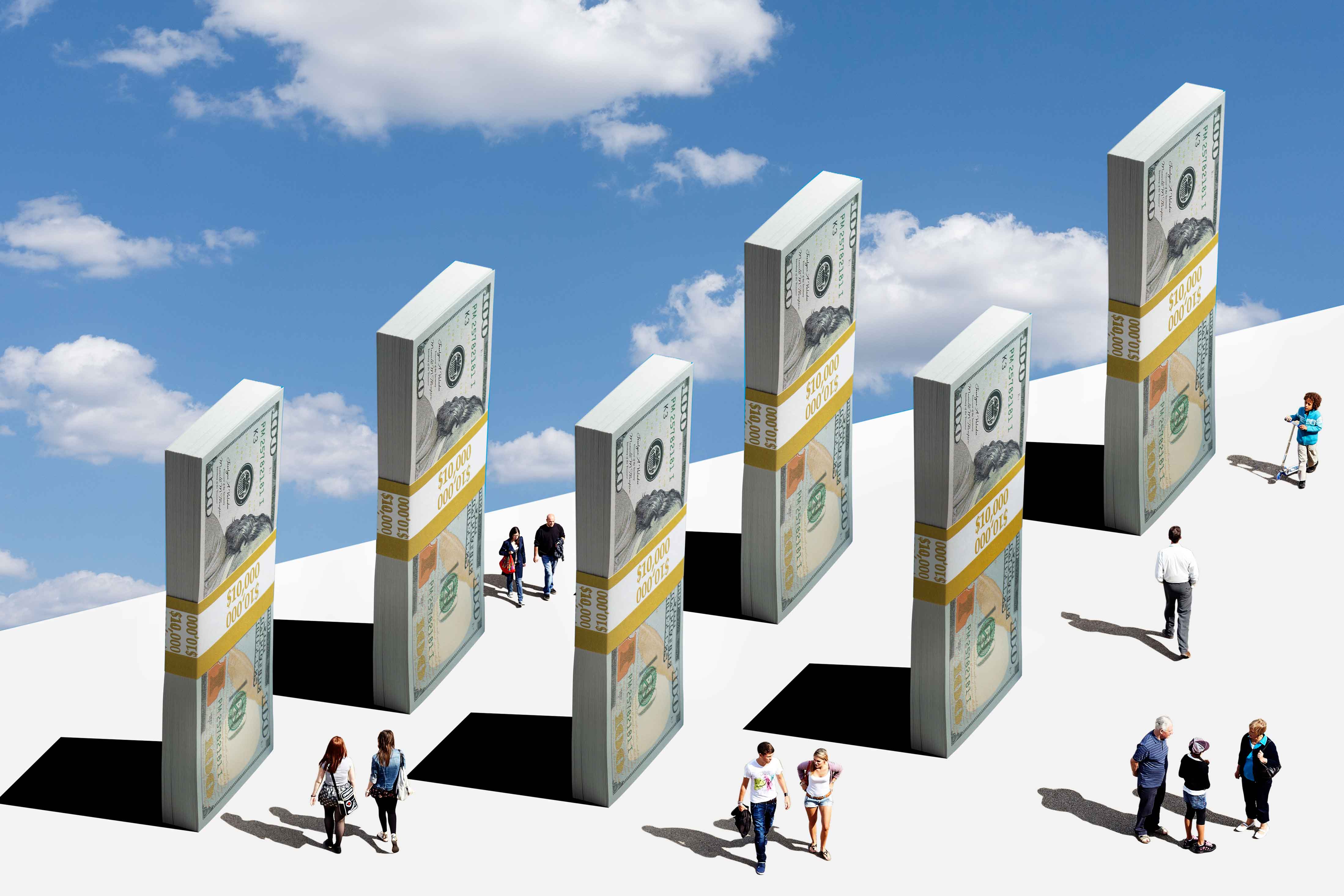 [ad_1]
[ad_1]
Most Individuals really feel that it’s clever to economize proper now amid an increase in concern about their funds, in response to new ballot outcomes.
In a Wells Fargo survey of roughly 3,400 adults and about 200 youngsters, nearly all of respondents mentioned they're worrying extra about cash recently. Many even mentioned they really feel embarrassed by their monetary circumstances — which can be main them to lie about particulars like their saving and spending habits.
Individuals are nervous about cash — however attempting to save lots of
Greater than half of respondents mentioned they’re in a position to dwell inside their means with out worrying about making ends meet, however on the identical time, solely 40% mentioned they’re in good or nice form financially. Virtually 1 / 4 reported that they’re in poor monetary form, and roughly 1 in 3 mentioned they’re spending greater than they will afford each month.
Nevertheless, 37% of respondents total mentioned they’ve been placing extra of their cash into savings and investments just lately. Ninety-one p.c mentioned it’s a superb time to economize, and so they're proper about that: Annual share yields on financial savings merchandise have skyrocketed up to now couple years due to the Federal Reserve's inflation-busting charge hikes.
Solely 14% of respondents mentioned that it is a good time to borrow. With annual percentage rates (APRs) on bank cards hovering above 22% and mortgage charges round 7%, we are able to’t say we blame them.
By growing rates of interest, the Fed successfully makes borrowing cash dearer — and saving it considerably cheaper. Working example: Some high-yield savings accounts are actually providing APYs of 5% or extra, and the best CDs are providing charges of 4.70% and better on phrases lengths from six months to 2 years.
The Federal Reserve is anticipated to start out slicing rates of interest this yr now that inflation is cooling, though specialists do not count on them to go down a lot. For now, it is anybody's guess when — and by how a lot — charges will decline.
Lies, darned lies and statistics
The findings recommend that Individuals’ insecurity of their monetary circumstances could also be main them to stretch the reality. Within the survey, nearly a 3rd of U.S. adults admitted to having lied about how a lot they spend, and 28% reported having lied about their financial savings.
Teenagers had been much more prone to say they’ve been dishonest about cash issues. Half of the 14- to 17-year-olds surveyed mentioned they’ve lied about their spending, whereas 42% mentioned they’ve lied about their financial savings.
General, greater than 1 / 4 of respondents mentioned they’ve lied about how a lot debt they've, and the same share have lied about their earnings. Most respondents mentioned that cash is private to them, with 65% saying they’re reluctant to speak about their savings and 62% saying the identical about their earnings.
In truth, Individuals are so awkward with regards to speaking about cash, they ranked funds as tougher to debate than loss of life, politics, faith, their well being and taxes.
“I believe that the root cause of people being reluctant to discuss money is that it reveals more about who they truly are, and that can make them uncomfortable — so much so that they are willing to lie about aspects of their financial life,” Michael Liersch, head of recommendation and planning for Wells Fargo, mentioned in a information launch.
However there is a bit of excellent information. Whereas they might not really feel utterly safe in the mean time, about 60% of individuals mentioned they’re pleased with their “money story” — or how their funds inform their life narrative — up to now, and 73% mentioned they really feel optimistic about the place it’s headed.
Extra from Cash:
5 Ways a Government Shutdown Could Affect Your Money
Dollar Scholar Asks: What Is Open Banking, and How Could It Benefit Me?
You May Be a 401(k) Millionaire Thanks to the Surging Stock Market


